24 TV Catchphrases From the ‘70s That Boomers Still Quote
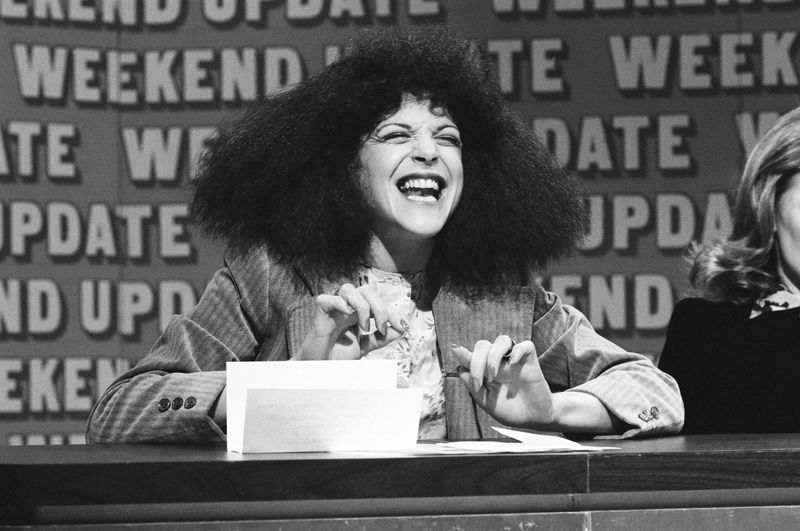
The 1970s were a golden age of television, producing not just memorable characters and storylines, but some of the most iconic catchphrases in pop culture history. For Baby Boomers, these lines are more than just bits of dialogue—they’re nostalgic throwbacks to simpler times, family living rooms with wood-paneled TVs, and the sound of laughter filling the house during prime time. Whether used to make a joke, reminisce with old friends, or playfully quote at the grandkids, these TV catchphrases have stood the test of time. If you’re a Boomer, you’ve probably uttered more than a few of these yourself—without even thinking about where they came from.
1. “Dyn-o-mite!” – J.J. Evans, Good Times
Few phrases lit up the screen with the same infectious energy as J.J. Evans’ signature shout. Played by Jimmie Walker, J.J. became an instant standout on Good Times, and his enthusiastic “Dyn-o-mite!” quickly transcended the show itself.
Audiences loved the way he punctuated punchlines and awkward moments alike with the word, often dragging it out with flair and a wide grin. It was more than a catchphrase—it was a cultural phenomenon that symbolized joy, rebellion, and charisma.
Even decades later, Boomers still say “Dyn-o-mite!” to express excitement or approval. It’s a reminder of a time when sitcoms were loud, colorful, and full of personality.
2. “Kiss my grits!” – Flo Castleberry, Alice
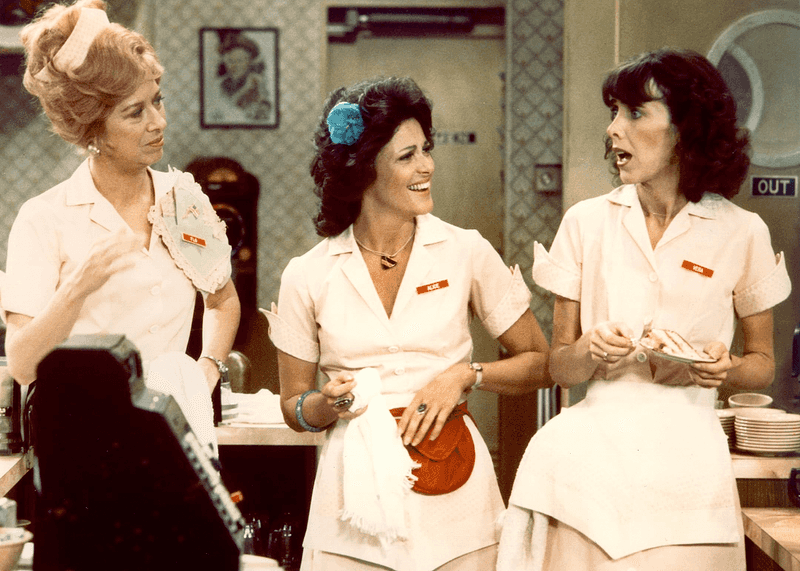
Florence Jean Castleberry wasn’t one to keep her opinions to herself, and when she delivered her famous line—“Kiss my grits!”—audiences knew someone had just been put in their place. Portrayed by Polly Holliday on Alice, Flo’s Southern sass made her a standout character.
The line became a national catchphrase almost overnight. It was playful, mildly insulting, and always delivered with a dose of charm. For many Boomers, it quickly became part of their vocabulary—especially when brushing off someone annoying.
“Kiss my grits!” still echoes today as a quirky way of saying “Buzz off” without sounding mean. Flo made it unforgettable—and undeniably Southern.
3. “Sit on it!” – Fonzie (and others), Happy Days
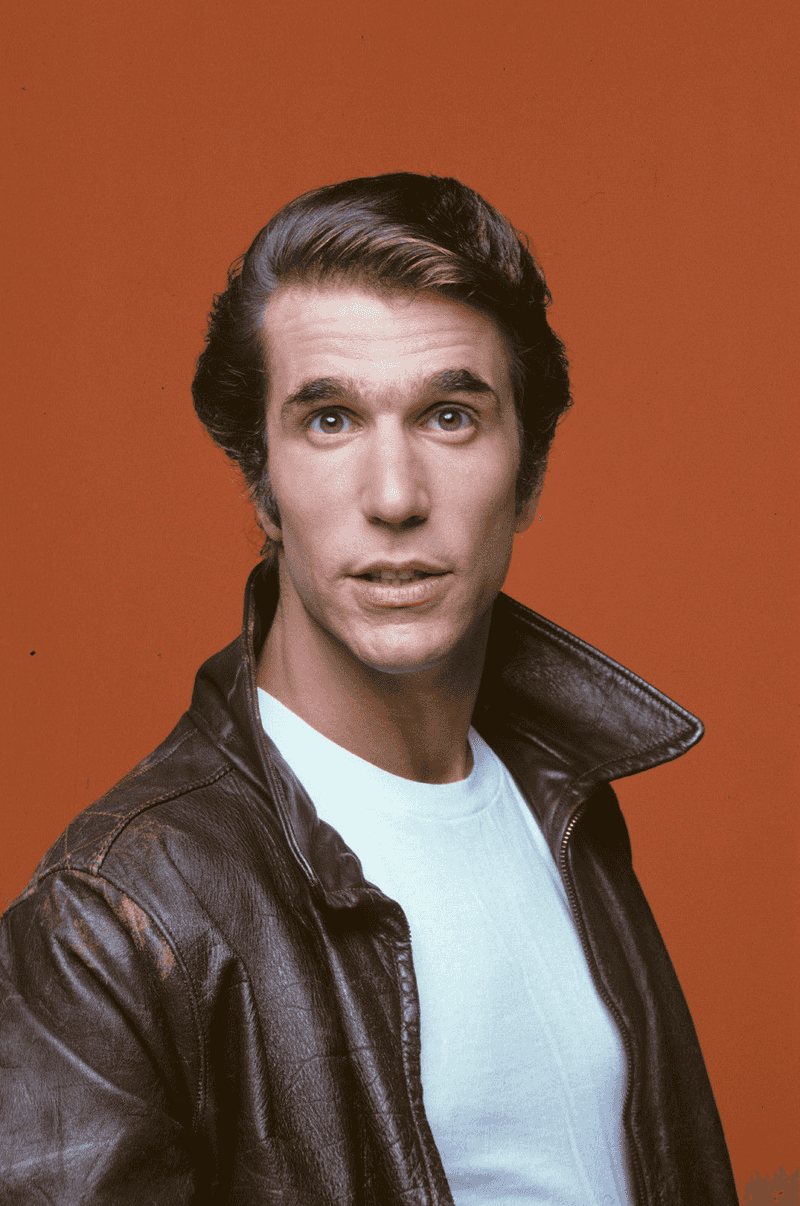
Whenever someone stepped out of line on Happy Days, there was a good chance they’d be told to “Sit on it!” This snappy insult, most famously delivered by The Fonz (but also by other characters), became one of the show’s most repeated catchphrases.
It was sharp, funny, and just edgy enough to feel rebellious—especially when uttered by a leather-jacketed cool guy like Fonzie. The phrase could be used playfully or with attitude, depending on the delivery.
Boomers embraced it as a way to say “Back off” without starting a real argument. Decades later, it still pops up in conversations as a nostalgic punchline from the golden days of TV.
4. “Book ‘em, Danno!” – Steve McGarrett, Hawaii Five-O

Crime didn’t stand a chance in Hawaii thanks to Detective Steve McGarrett’s legendary line: “Book ’em, Danno.” After solving a case on Hawaii Five-O, this was his signature command to his right-hand man, Danny Williams.
The phrase carried a sense of finality and justice. It let viewers know the bad guys were off the streets, and order had been restored. As police procedurals grew in popularity, “Book ’em, Danno” became part of American slang.
Boomers still quote it today when jokingly calling out a friend’s misbehavior—or even just cleaning up a mess. It’s a line that made law enforcement sound undeniably cool.
5. “Ayyyy!” – Fonzie, Happy Days
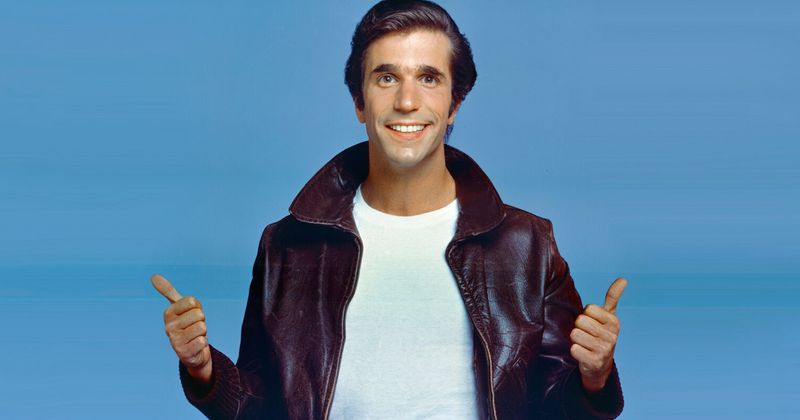
The moment Fonzie entered the room with a raised hand and a confident “Ayyyy!” the crowd would erupt. It wasn’t just a greeting—it was a vibe. Henry Winkler’s portrayal of The Fonz made this single syllable into a cultural touchstone.
This catchphrase conveyed coolness, friendliness, and dominance in just one sound. It became the character’s calling card, used when everything was going great—or about to go his way.
Boomers still echo “Ayyyy!” in playful moments or when channeling their inner Fonz. It’s one of those rare lines that require no explanation, because it speaks with attitude all on its own.
6. “You big dummy!” – Fred Sanford, Sanford and Son
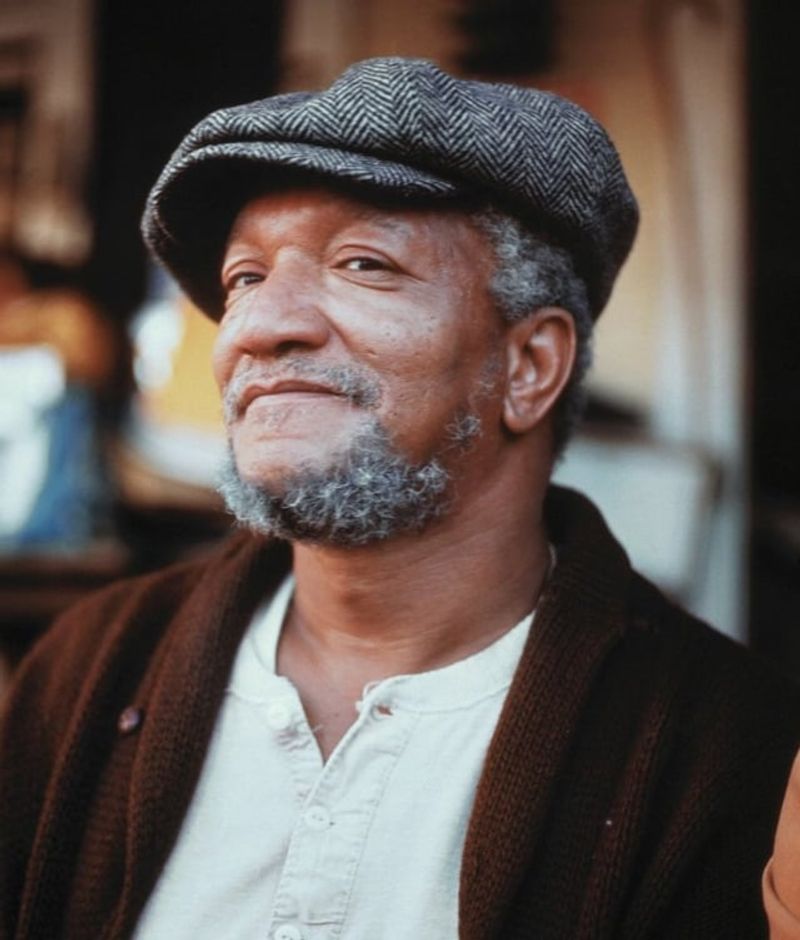
Nothing cut through the tension quite like Fred Sanford’s sharp-tongued insult, “You big dummy!” Delivered with an eye roll or theatrical exasperation, it was usually aimed at his son, Lamont, in Sanford and Son. Actor Redd Foxx turned what could have been a harsh insult into comedy gold.
The phrase became a comedic staple, and its delivery was everything—part frustration, part love, all attitude. Fred used it to mask his affection while keeping Lamont in check.
Boomers continue to quote it when someone makes a silly mistake or forgets something obvious. It’s playful, iconic, and packed with vintage sitcom charm.
7. “Just one more thing…” – Lt. Columbo, Columbo
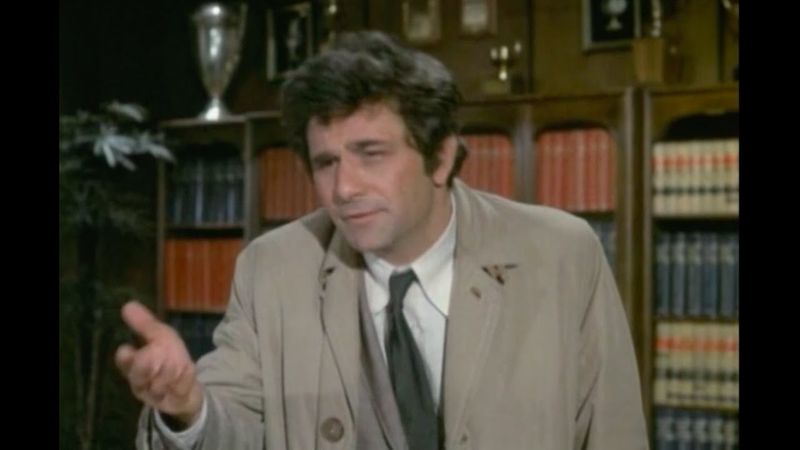
Detective Columbo wasn’t flashy, but he was brilliant—and persistent. Just when suspects thought they were off the hook, he’d turn back and say, “Just one more thing…” It was a soft-spoken trap that signaled the unraveling of their lies.
The line became synonymous with clever deduction and psychological finesse. Peter Falk’s portrayal made Columbo disarming and relatable, turning that phrase into the verbal equivalent of a magnifying glass.
For Boomers, “Just one more thing…” is a clever way to sneak in an extra point or question—usually when wrapping up a conversation. It’s subtle, memorable, and always gets a smile.
8. “The thrill of victory… and the agony of defeat.” – ABC’s Wide World of Sports
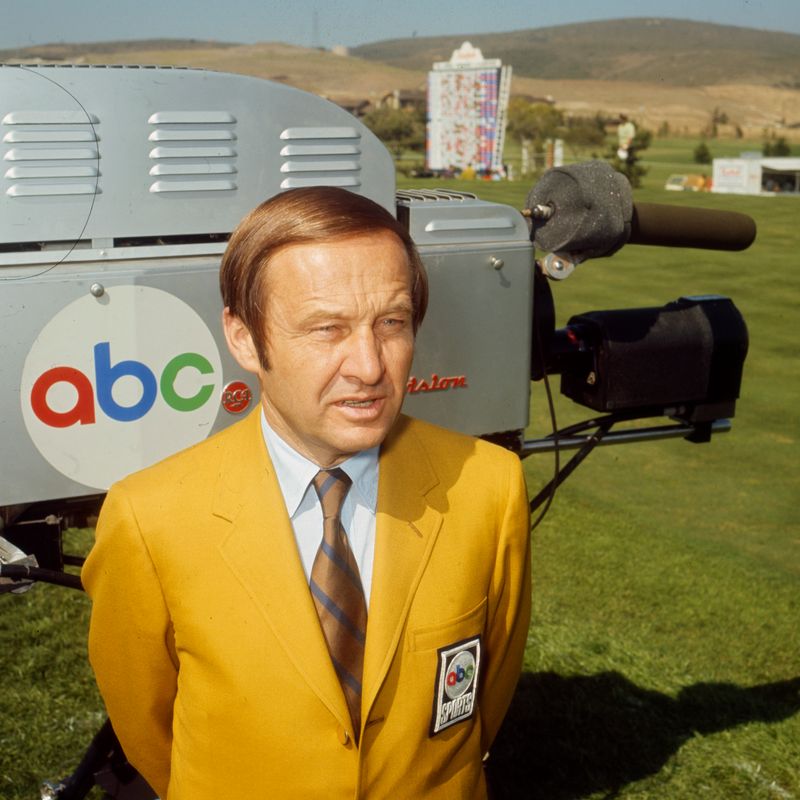
Narrated with dramatic flair, this opening line from ABC’s Wide World of Sports became one of the most quoted taglines in sports broadcasting. It accompanied footage of athletes at their best—and worst—reminding viewers of both glory and heartbreak.
The phrase captured the emotional spectrum of competition and quickly seeped into popular culture. Whether talking about real sports or metaphorical wins and losses, Boomers adopted it to describe life’s highs and lows.
Today, it’s still used to jokingly describe everything from bad dates to burnt dinners. It’s powerful, poetic, and a nostalgic echo of TV’s golden age of sports.
9. “I know nothing!” – Sgt. Schultz, Hogan’s Heroes
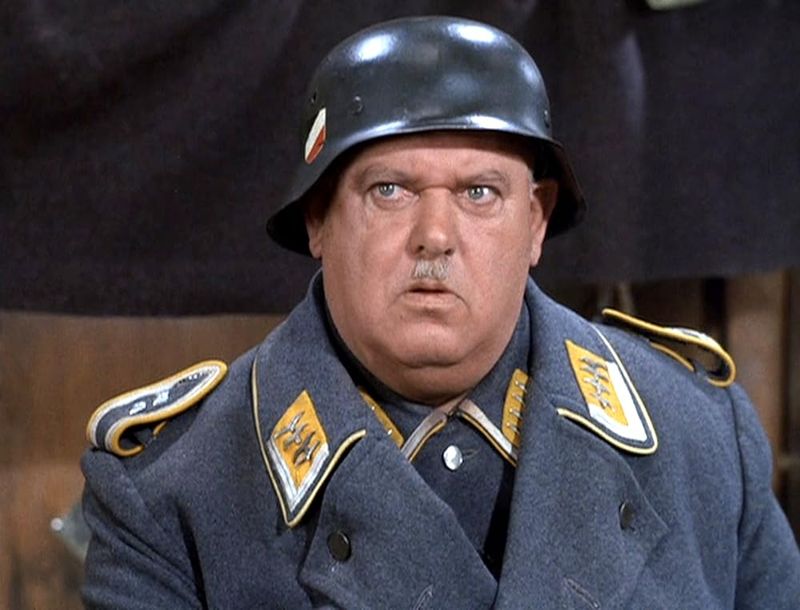
Sgt. Schultz’s defense mechanism in Hogan’s Heroes was as funny as it was iconic. With wide eyes and a panicked tone, he’d claim, “I know nothing!” to avoid getting in trouble or acknowledging the mischief going on around him.
His exaggerated denial became a comedic staple, especially because it was so transparent. Schultz wasn’t fooling anyone—but that was the point. Boomers loved how he tried to play dumb and stay out of the chaos.
Even now, saying “I know nothing!” is a humorous way to dodge responsibility or feign innocence. It’s a phrase that instantly conjures up old-school sitcom charm
10. “Marcia, Marcia, Marcia!” – Jan Brady, The Brady Bunch
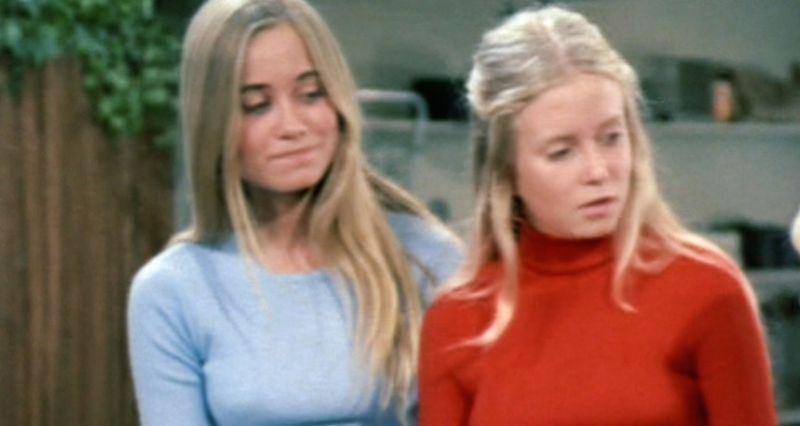
Jealousy never sounded so iconic. When Jan Brady exclaimed “Marcia, Marcia, Marcia!” it captured the essence of sibling rivalry in The Brady Bunch. Her dramatic frustration over her sister’s perfection struck a chord with anyone who’s ever felt overshadowed.
The repetition and whiny tone turned it into one of the most quoted lines from the show. It became shorthand for envy—and not just among sisters. Boomers remember it as a relatable and funny moment that added depth to the otherwise wholesome series.
Today, the phrase still pops up when someone is stealing the spotlight. It’s funny, exaggerated, and forever linked to Jan’s middle-child angst.
11. “Will the real [so-and-so] please stand up?” – To Tell the Truth
![“Will the real [so-and-so] please stand up?” – To Tell the Truth](https://frumvintxhwwdlxdneim.supabase.co/storage/v1/object/public/article_images/c489a9b1-be8e-4673-a310-4dcbabc4b70d/Mk9d8bvzUdiF_-2Q.jpeg)
Game shows weren’t just about trivia in the ‘70s—they were about drama. On To Tell the Truth, this iconic line came at the end of each round, building suspense before the real contestant revealed themselves.
It was a moment that made audiences lean in, especially when the imposters were convincing. The line quickly moved from game show lingo to everyday language, used whenever someone needed to fess up or take responsibility.
Boomers still say it jokingly when trying to find out who really did something, whether it’s spilling a drink or sharing a secret. It’s classic, clever, and full of retro flair.
12. “Na-nu, na-nu” – Mork, Mork & Mindy
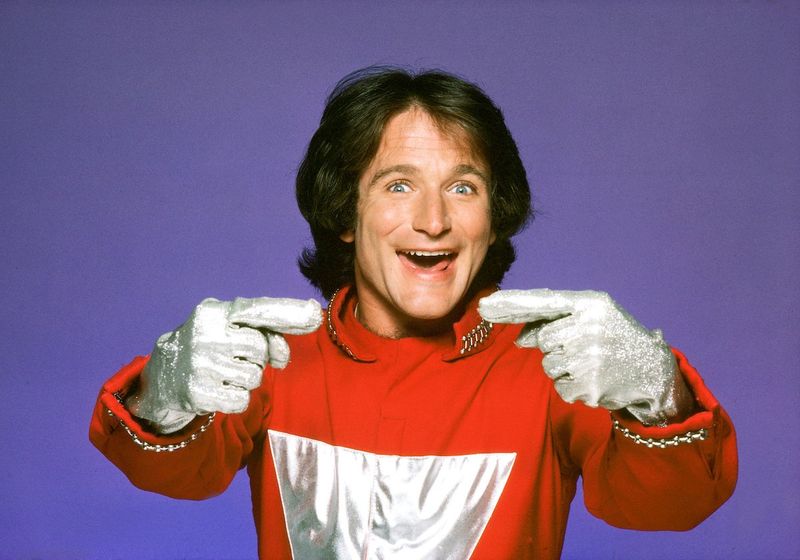
Robin Williams brought a whirlwind of energy to Mork & Mindy, and with it came a strange but unforgettable alien greeting: “Na-nu, na-nu.” Spoken with a Vulcan-style hand gesture, it was Mork’s way of saying hello from planet Ork.
The phrase quickly became a pop culture phenomenon. It was silly, spacey, and totally contagious—especially with Williams’ zany delivery. Kids and adults alike picked it up, often mimicking Mork’s quirky voice and salute.
For Boomers, “Na-nu, na-nu” is a nostalgic throwback to the era’s fascination with aliens and offbeat humor. Even now, it’s quoted with affection—and a bit of cosmic absurdity.
13. “Hey, hey, hey!” – Fat Albert, Fat Albert and the Cosby Kids
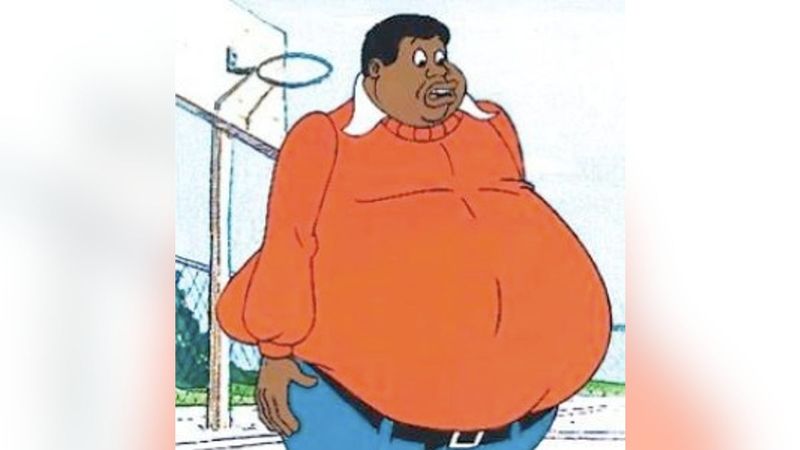
Each episode of Fat Albert and the Cosby Kids began with a warm, booming “Hey, hey, hey!” It wasn’t just a catchphrase—it was an invitation to learn something wrapped in fun. Fat Albert’s greeting became his signature sound, one that kids instantly recognized.
The line carried a sense of community and positivity. Even though the show tackled tough subjects, it always started with a smile. Boomers remember it as a cheerful moment that set the tone for lessons ahead.
Today, “Hey, hey, hey!” is still used as a friendly way to get someone’s attention—with a little old-school swagger built in.
14. “Sock it to me!” – Laugh-In
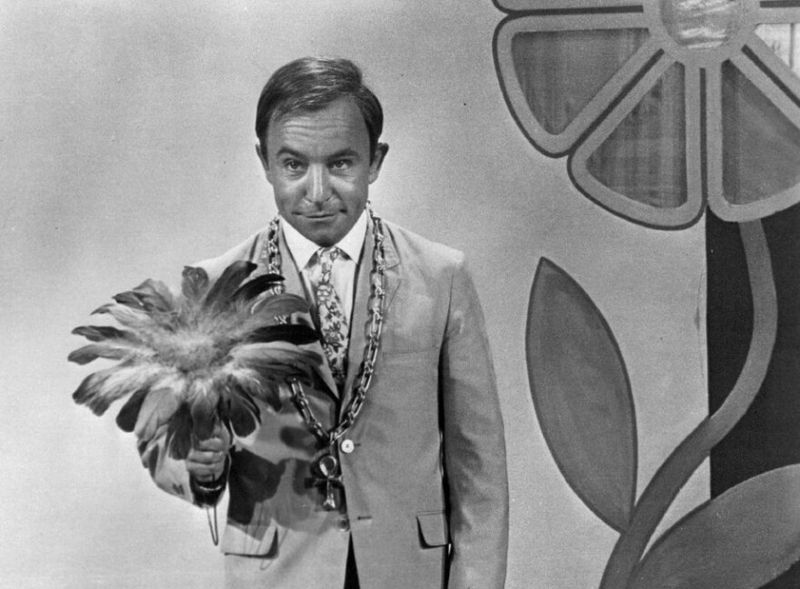
Before Saturday Night Live, there was Rowan & Martin’s Laugh-In—and “Sock it to me!” was its crown jewel of catchphrases. Usually followed by a slapstick gag or splash of water, the phrase popped up in fast-paced skits that defined the show’s irreverent style.
It was playful, unpredictable, and became even more iconic when political figures (like Nixon) tried their hand at saying it. The line perfectly matched the show’s zany tone and fast cuts.
Boomers still repeat it for laughs, often when asking for honesty or inviting a challenge. It’s funky, fun, and full of counterculture energy from TV’s grooviest decade.
15. “That’s the way it is.” – Walter Cronkite, CBS Evening News
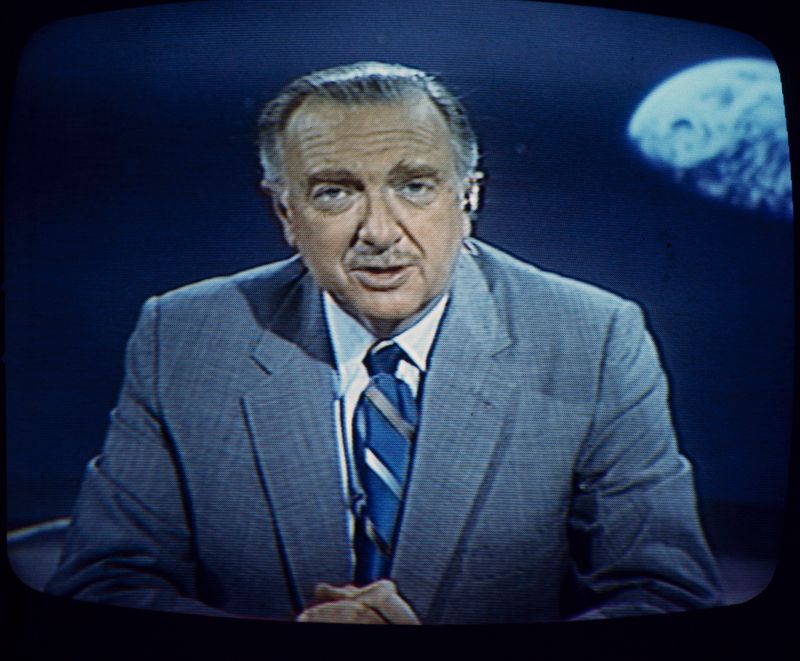
No news anchor inspired more trust than Walter Cronkite, and his signature sign-off—“That’s the way it is”—became a reassuring nightly moment for millions of viewers. It wasn’t just a tagline—it was a stamp of journalistic integrity.
The phrase conveyed finality and authority, summarizing the day’s events with calm precision. Cronkite’s tone made it feel like a friend telling you the truth, without spin.
Boomers still quote it when wrapping up a discussion or stating a fact that doesn’t need debate. It’s a line steeped in confidence and nostalgia, evoking a time when the news felt reliable—and America listened.
16. “It’s always something.” – Gilda Radner as Roseanne Roseannadanna, SNL
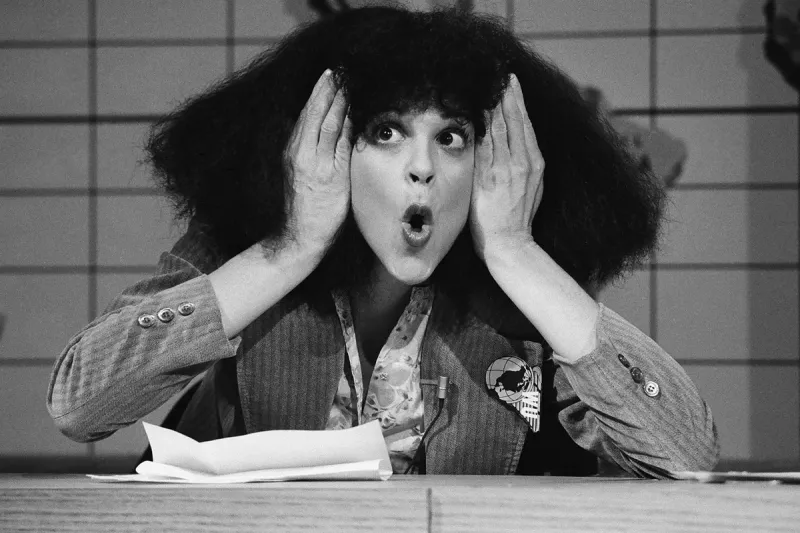
Life’s little annoyances found their voice in Gilda Radner’s unforgettable character, Roseanne Roseannadanna, on Saturday Night Live. With her wild hair and winding rants, she often ended her segments with a resigned, “It’s always something.”
The line summed up the character’s over-the-top observations and never-ending complaints. Delivered with a mix of exhaustion and humor, it connected with audiences who knew exactly what she meant.
Boomers embraced the phrase because it perfectly captured the ups and downs of everyday life. Even now, when things go wrong or problems pile up, you’ll hear someone mutter, “It’s always something.” And they’re probably smiling while saying it.
17. “Time to make the donuts.” – Dunkin’ Donuts commercial
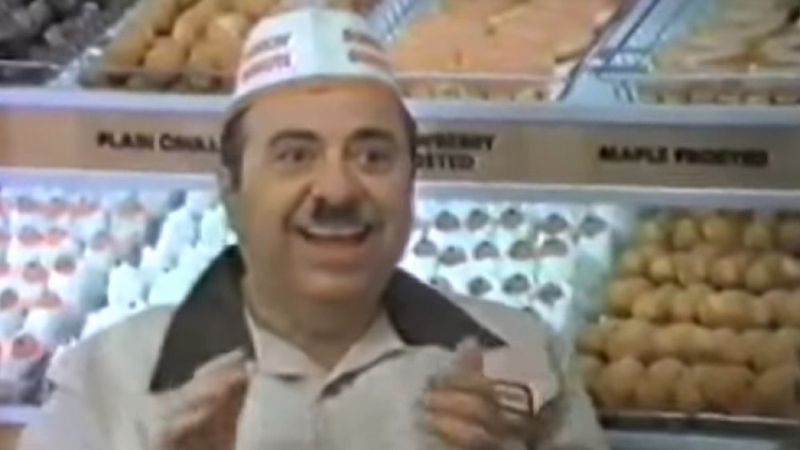
A groggy, apron-clad man stumbling out of bed to make the donuts became one of the most beloved commercial characters of the ‘70s. Dunkin’ Donuts’ sleepy mascot, Fred the Baker, made “Time to make the donuts” a phrase everyone could relate to.
His daily grind became symbolic of the workday routine. Despite being about donuts, it resonated with anyone who felt stuck in repetition. Fred’s monotone delivery added to its charm—it was both funny and familiar.
Boomers still quote it on early mornings or before heading to work. It’s a comical way to acknowledge the drudgery of adult life—with a sprinkle of nostalgia.
18. “Stifle yourself.” – Archie Bunker, All in the Family
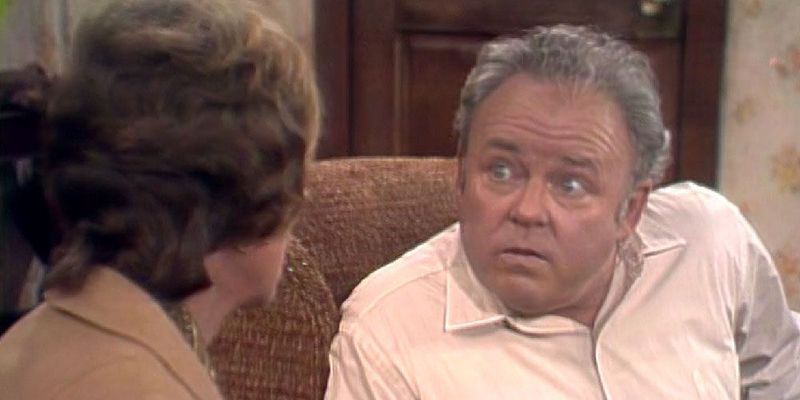
Archie Bunker didn’t mince words, especially when it came to his wife, Edith. His blunt command—“Stifle yourself!”—was often delivered with a wave of the hand and a mix of irritation and condescension on All in the Family.
The phrase became controversial and comedic, showcasing Archie’s old-school views and abrasive charm. While Edith’s patience softened his edges, audiences loved the raw, unfiltered language that defined the show.
Though not exactly polite, “Stifle yourself” is still quoted by Boomers who recall Archie’s larger-than-life presence. It remains one of TV’s most memorable ways of telling someone to be quiet—laced with just enough humor to get away with it.
19. “Well, excuuuuuuse me!” – Steve Martin, SNL
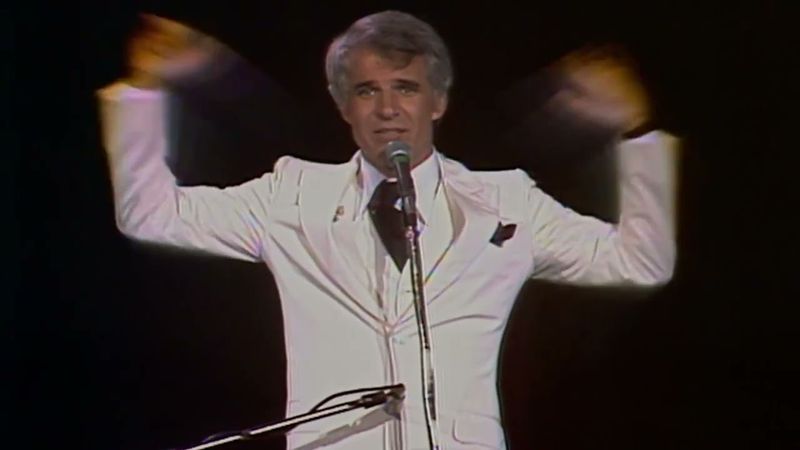
Few catchphrases have as much exaggerated flair as Steve Martin’s classic “Well, excuuuuuuse me!” from Saturday Night Live. Delivered with dramatic pauses and wild body language, it became a comedy staple in the late ‘70s.
Martin used the line to mock arrogance and false outrage, creating a character who turned self-centeredness into a punchline. The over-the-top delivery made it instantly recognizable and endlessly repeatable.
Boomers still quote it when playfully feigning offense or poking fun at someone being overly sensitive. It’s a phrase that captures the absurdity of taking yourself too seriously—and invites everyone else to laugh about it.
20. “Say goodnight, Gracie.” – George & Gracie Burns
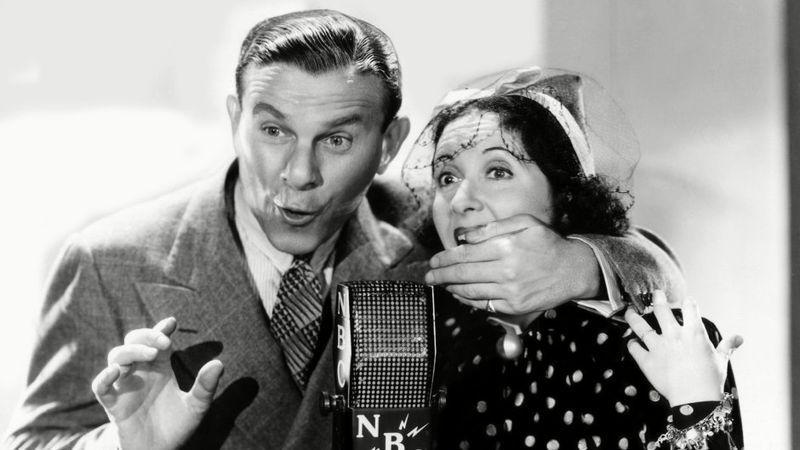
Even though The George Burns and Gracie Allen Show started before the ‘70s, reruns kept this iconic line alive well into the decade. At the end of each episode, George would say, “Say goodnight, Gracie,” and Gracie would sweetly reply, “Goodnight, Gracie.”
The gag never got old. It was a clever play on literalism and charm, perfectly capturing the couple’s comic dynamic. Short, sweet, and endlessly quotable, the exchange became a staple of old-school comedy.
Boomers often use it as a humorous sign-off at parties or bedtime. It’s timeless, endearing, and a perfect example of how simplicity can make a catchphrase legendary.
21. “Up your nose with a rubber hose!” – Vinnie Barbarino, Welcome Back, Kotter
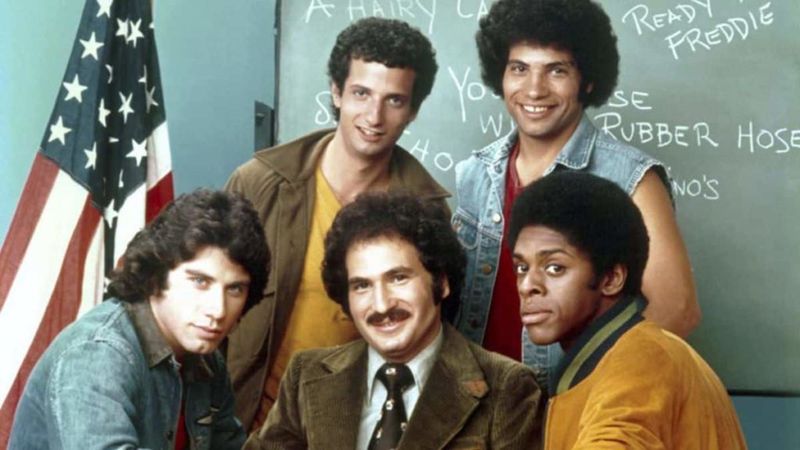
High school never sounded so weirdly creative. Vinnie Barbarino, played by John Travolta on Welcome Back, Kotter, delivered “Up your nose with a rubber hose!” with perfect teen rebellion. It was silly, surprising, and oddly threatening—all in a way only Vinnie could pull off.
This catchphrase, along with others from the Sweathogs, became a schoolyard sensation. It gave kids a funny way to talk back without crossing a line. The absurdity made it memorable.
Boomers who grew up watching the show still laugh when they hear it. It’s an over-the-top insult that doesn’t take itself seriously—and that’s exactly why it stuck.
22. “Don’t make me angry. You wouldn’t like me when I’m angry.” – Dr. Banner, The Incredible Hulk
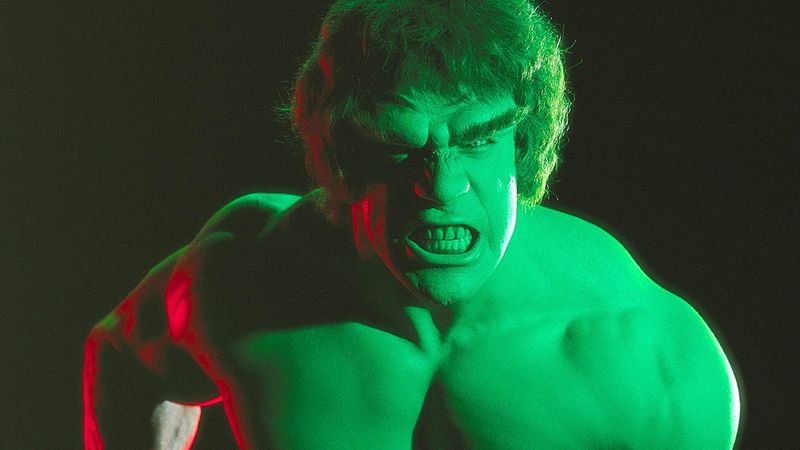
As Dr. David Banner warned viewers in the opening of The Incredible Hulk, transformation came with a price. His ominous line—“Don’t make me angry. You wouldn’t like me when I’m angry.”—wasn’t just a warning; it was a promise.
This phrase added suspense to the character’s soft-spoken persona, hinting at the rage waiting beneath. Every episode, fans knew that once he said it, things were about to get intense.
Boomers still use this line—half-seriously, half-jokingly—when they feel frustrated or pushed too far. It’s dramatic, a little funny, and full of 1970s superhero grit that made the show unforgettable.
23. “Let’s be careful out there.” – Hill Street Blues
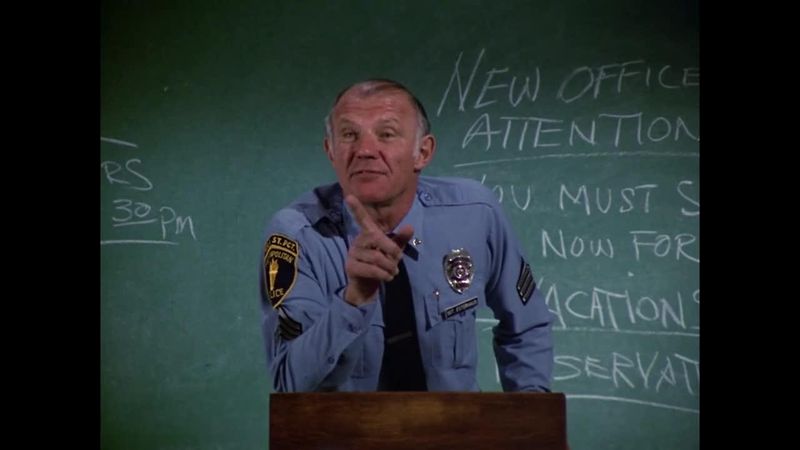
Even in a gritty cop drama like Hill Street Blues, there was room for heartfelt repetition. At the start of every episode, Sgt. Phil Esterhaus ended his morning briefing with “Let’s be careful out there.” It was a simple reminder with powerful undertones.
The phrase reflected the show’s grounded approach to portraying law enforcement—dangerous, exhausting, and deeply human. It stuck with viewers because it wasn’t flashy. It was real.
Boomers often quote it when heading into any challenging situation—whether it’s a work presentation or a winter road trip. It’s a respectful nod to caution, camaraderie, and a groundbreaking TV series.
24. “We are two wild and crazy guys!” – Steve Martin & Dan Aykroyd, SNL
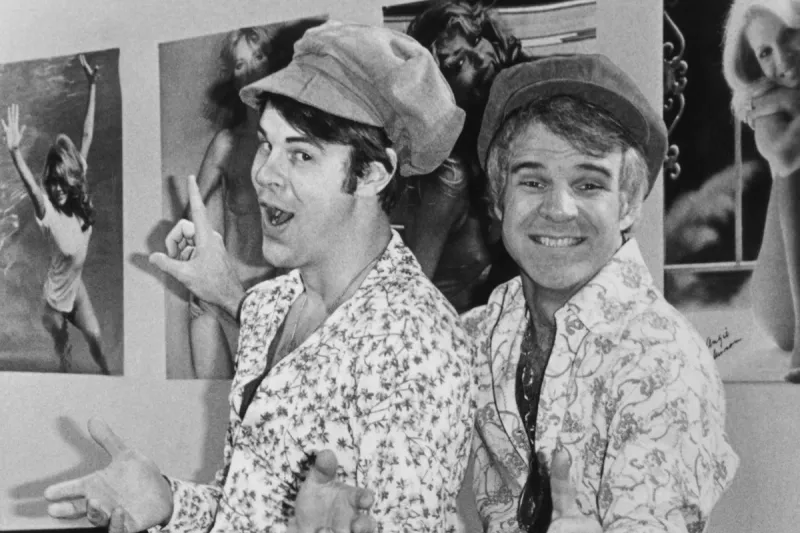
The Festrunk Brothers—two awkwardly overconfident Eastern European men—became instant legends on Saturday Night Live. Their enthusiastic declaration, “We are two wild and crazy guys!” was delivered with flailing arms, loud voices, and polyester swagger.
Steve Martin and Dan Aykroyd created a bizarre, lovable energy that audiences couldn’t get enough of. Their exaggerated antics, paired with that unforgettable catchphrase, turned the sketch into a phenomenon.
Boomers still quote it when goofing off with friends or poking fun at themselves. It’s absurd, joyful, and delightfully dated—in all the right ways. The phrase continues to live on in awkward party jokes and nostalgic laughs.

Comments
Loading…